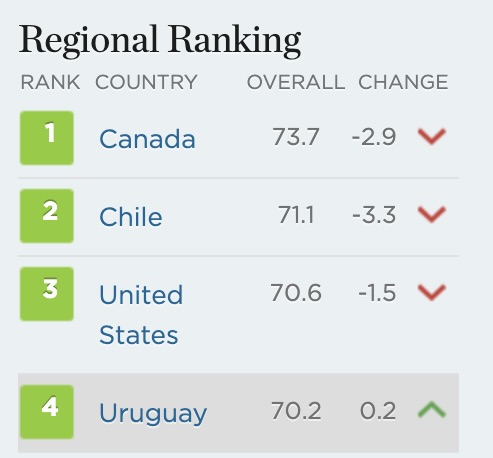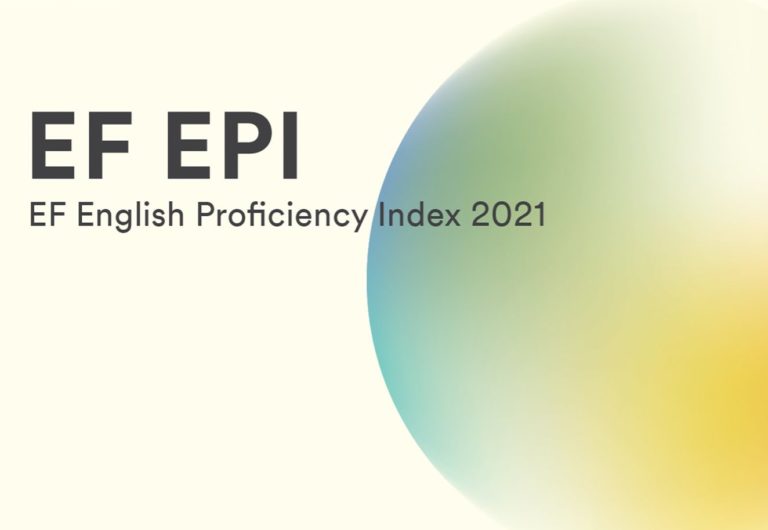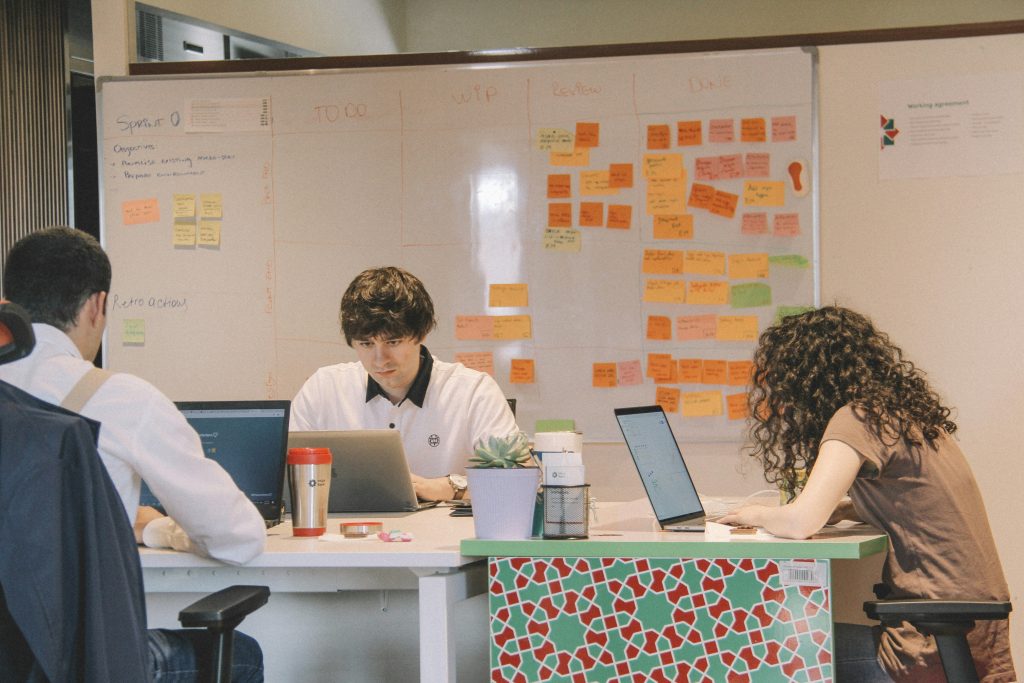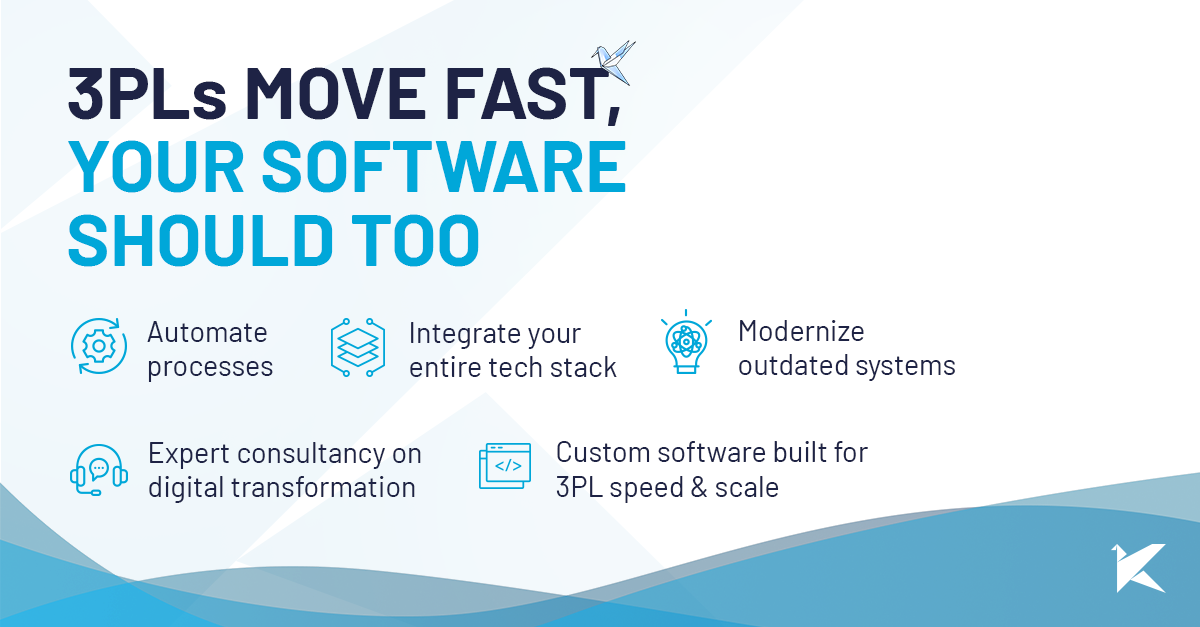In a previous blog post, we explored the factors that have led Uruguay to transform into an IT hub in Latin America. From its strong connectivity and network infrastructure to its high-quality tech talent, Uruguay has become an attractive destination for global companies like IBM, Microsoft and Oracle, seeking software development services.
In this second part, we will explore why Uruguay is a top Nearshore software development destination.
Reasons Why Uruguay is a Top Nearshore Software Development Country
1. Transparent Business Environment and Economic Freedom
Uruguay’s dedication to transparency it’s remarkable. It’s the least corrupt country in Latin America, and stands tall at the 18th global spot in the Corruption Perceptions Index (CPI), boasting a remarkable score of 73/100. The CPI draws its strength from an impressive array of data sources, including the World Bank and the World Economic Forum.
In economic freedom, Uruguay takes the 27th position worldwide and an astonishing 4th place in the Americas. With an economic freedom score of 70.2, it surpasses both global and regional averages. What does this mean for you? An environment that is finely tuned for efficiency, offering not only cost-effective services but also the promise of success.

Uruguay’s impeccable reputation for upholding ethical business practices and a deep understanding of client expectations sets the stage for an exceptionally trustworthy and reliable partnership. When you entrust your software projects to a third party, these factors not only minimize risks but also ensure the ethical handling of your business needs.
2. Time Zone Compatibility

Uruguay’s time zone compatibility is a gift to U.S. clients. Operating on the Uruguay Standard Time (UYT), it’s just one hour ahead of the Eastern Time Zone (ET) in the United States.
The advantages of this time zone compatibility are crystal clear:
Real-Time Collaboration: With synchronized time zones, real-time collaboration is second nature. Both you and your nearshore development teams can work during regular business hours, ensuring rapid responses to queries, swift issue resolution, and prompt project updates.
Overlap of Working Hours: The critical overlap of working hours ensures seamless communication and efficient project management. Uruguay’s proximity to the U.S. East Coast ensures several hours of shared working time, creating the ideal window for meetings, discussions, and immediate problem-solving.
Reduced Communication Delays: Similar time zones dramatically reduce the risk of communication delays due to time zone disparities. Messages, emails, and calls flow freely during your regular workday, elevating the efficiency and responsiveness of your development process.
2. English Proficiency

While Spanish is the official language of Uruguay, the country has a notable level of English proficiency for several reasons:
Educational System: Uruguay places a strong emphasis on education, with English being a mandatory subject in its national curriculum. The journey begins early, often in kindergarten, and continues throughout academic years. This enduring commitment to language education molds a population with a heightened level of English proficiency.
Global Business and Trade: Uruguay has a thriving business environment with a focus on international trade and services. Many companies in Uruguay engage in global commerce, and English is often the preferred language for international communication. This necessity for English proficiency in the business world encourages individuals to learn and improve their English skills.
Data from the EF English Proficiency Index, which ranks countries by their English proficiency, consistently places Uruguay at a relatively high level compared to other Latin American countries. In the 2021 index, Uruguay was ranked 36th out of 100 countries, indicating a moderate-to-high level of English proficiency.
Moreover, the Organization of Ibero-American States for Education, Science, and Culture (OEI) reported in 2020 that approximately 50% of the Uruguayan population possesses some level of English knowledge. This widespread effort to promote English language education underscores Uruguay’s commitment to a bilingual future.
Uruguay’s dedication to English proficiency, deeply embedded in its educational system and thriving business landscape, offers a bridge of communication and understanding for our U.S. clients. With Uruguay as your nearshore partner, you’ll experience not only technical expertise but also a seamless flow of ideas, ensuring the success of your projects.
4. Cultural Fit: A Seamless Blend of Values and Vision
In the quest for a nearshore partner who understands and aligns with your cultural ethos, Uruguay shines as a beacon of cultural affinity. Here’s why it resonates with U.S. clients:
- Education and Professional Training: Uruguay has a well-developed education system that emphasizes the acquisition of skills and knowledge relevant to the global market. Many educational institutions in Uruguay offer English language programs and incorporate international standards in their curriculum, preparing students to work effectively in cross-cultural settings. The focus on education, particularly in the fields of science, technology and engineering, has contributed to the growth of the country’s tech industry and its emergence as a tech hub in the region.
- International Exposure: Uruguay has a high degree of international exposure, with a significant number of its population having traveled or lived abroad. This exposure contributes to a broader understanding of Western cultures, work practices, and business expectations, enhancing the cultural affinity between Uruguay and Western countries.
The result? An enriched cultural affinity between Uruguay and Western countries, including the United States. With Uruguay as your nearshore ally, you’re not only investing in technical excellence but also in a shared culture of success and understanding.
5. Agile and Flexible Workforce: Your Partners in Innovation

Uruguay’s agile and flexible workforce is primed to be your trusted ally in the pursuit of innovation. Here’s why it resonates with U.S. clients:
- Educational and Training Programs: Uruguay has invested in educational programs and training initiatives focused on agile methodologies. Universities and technical institutions offer courses and training in agile practices, which has contributed to a skilled workforce that is well-versed in agile development.
- Adaptability and Problem-Solving Culture: Uruguayan culture emphasizes adaptability and creative problem-solving. This cultural mindset aligns well with agile principles, such as responding to change and finding innovative solutions, making it a natural fit for the software development process.
- Start-up Ecosystem: Uruguay has a growing start-up ecosystem that values agility and rapid product development. This entrepreneurial culture has reinforced the adoption of agile methodologies, as start-ups are often at the forefront of innovation and methodology adoption.
With Uruguayan professionals, you’ll find partners who thrive in the face of challenges, embrace change as an opportunity, and view problems as puzzles waiting to be solved. It’s this natural fit with agile methodologies that ensures your software development process is not just efficient but also an innovative journey.
6. Cost Efficiency
Software Development companies in Uruguay often use the “Time & Materials” cost structure to estimate and bill for their services. This model is synonymous with flexibility and transparency. It operates on a simple premise: clients pay for the time and resources invested in a project, along with the materials or tools used. Here’s what this model entails:
Hourly Rates: Service providers typically charge clients on an hourly basis. This means you pay for the number of hours worked on your project.
Resource Allocation: The model allows for resource allocation to be adjusted as the project evolves. If you need more or fewer team members, the model accommodates these changes.
Flexibility: The time and materials model provides the flexibility to adapt to changing project requirements. If new features are added or scope adjustments are necessary, it’s easier to accommodate them without a significant overhaul of the project plan.
Uruguay’s cost-efficiency shines through its competitive hourly rates for software development services. The majority of companies in the field charge between $50 to $99 per hour, depending on the seniority level of the talent involved in the project. Here’s what this pricing structure means for you:
Affordability: With hourly rates that are significantly lower than those in developed countries, you can access top-tier software development services at a fraction of the cost.
Quality vs. Cost: While the rates are budget-friendly, it doesn’t translate to a compromise on quality. Uruguay prides itself on delivering high-quality work that meets or exceeds industry standards.
Customization: The time and materials model, combined with competitive rates, allows you to customize the scope and scale of your project according to your specific needs and budget.
Value Proposition: Uruguay’s cost-efficiency isn’t about cutting corners; it’s about offering exceptional value. The combination of competitive pricing, highly skilled professionals, and a transparent cost structure positions Uruguay as a cost-effective destination for nearshore software development services.
Conclusion
In the world of nearshore software development, the choice of your partner is not just a decision; it’s a strategic move that shapes the future of your projects. We invite you to embark on a journey of trust, innovation, and success with Uruguay, your ultimate nearshore destination.
At Kaizen Softworks, we are ready to be your guide on this journey, providing you with not just technical expertise but also trust and reliability. With Uruguay as your ally, your path to software development success begins with confidence.




